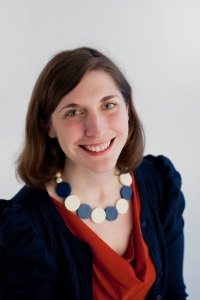 |
Dr Rebecca Zahn is Secretary of the academic association for Contemporary European Studies (UACES).
Yesterday you kicked off the UACES 46th Annual Conference. Is there a specific theme for your congress?
This year’s theme is ‘London as a European City’.
Is your conference also of social and cultural resonance?
Yes, our conference brings together academics and practitioners working on European Studies in many different countries and in different social and cultural settings. There are lots of opportunities for networking so that the conference truly allows for interdisciplinary exchange on an academic and personal level. As part of the conference programme we always organize cultural excursions on the last day which delegates can choose to participate in and we aim to hold our drinks reception (open to all delegates free of charge) and conference dinner in venues which have local cultural significance. Academically, our plenary sessions engage with topical debates which are taking place in the conference host’s country or region.
For your congress you have chosen London. Why?
We launch a call every year for Universities to bid to host our annual conference. Queen Mary University was selected through this competitive process in 2014 to host this year’s conference in London. Queen Mary provides excellent accommodation in the East End of London and the organizing academics have been very engaged in putting together a great programme of plenary and keynote speakers. We have Nick Clegg MP speaking on ‘London as a European City’ and an excellent plenary session on the future of Britain and the European Union following the ‘Brexit’ referendum to look forward to.
For those delegates who cannot join you in UK, can they participate remotely?
Unfortunately, this is not possible. We have had plenary speakers participate in the conference by video link in the past but the vibrancy of the conference really depends on delegates attending in person.
What are the main challenges for the academic association for Contemporary European Studies?
The main challenge facing UACES currently stems from ‘Brexit’ and to ensure that we, as an organization, continue to fulfil our mission to ‘advance education for the public benefit through the promotion of teaching and research in contemporary European Studies’. UACES began its life in December 1967 before the UK joined the then EEC and we have grown to be the UK’s biggest academic association for those teaching and researching in European Studies. It is still too early to predict the consequences for UACES and for our members which will arise from the UK’s decision to leave the EU but we have already begun exchanging thoughts and ideas on how we can support each other in order to look positively to the future.
UACES is the UK’s academic association for Contemporary European Studies. It is a membership organization for academics, students and practitioners who are interested in all aspects of Europe and the European Union. The principal activities include: organizing events and conferences; providing funding for members' research activities; collaborating on the publication of books and journals; and supporting a range of Collaborative Research Networks.
The object of the association is to advance education for the public benefit through the promotion of teaching and research in contemporary European Studies.
www.uaces.org